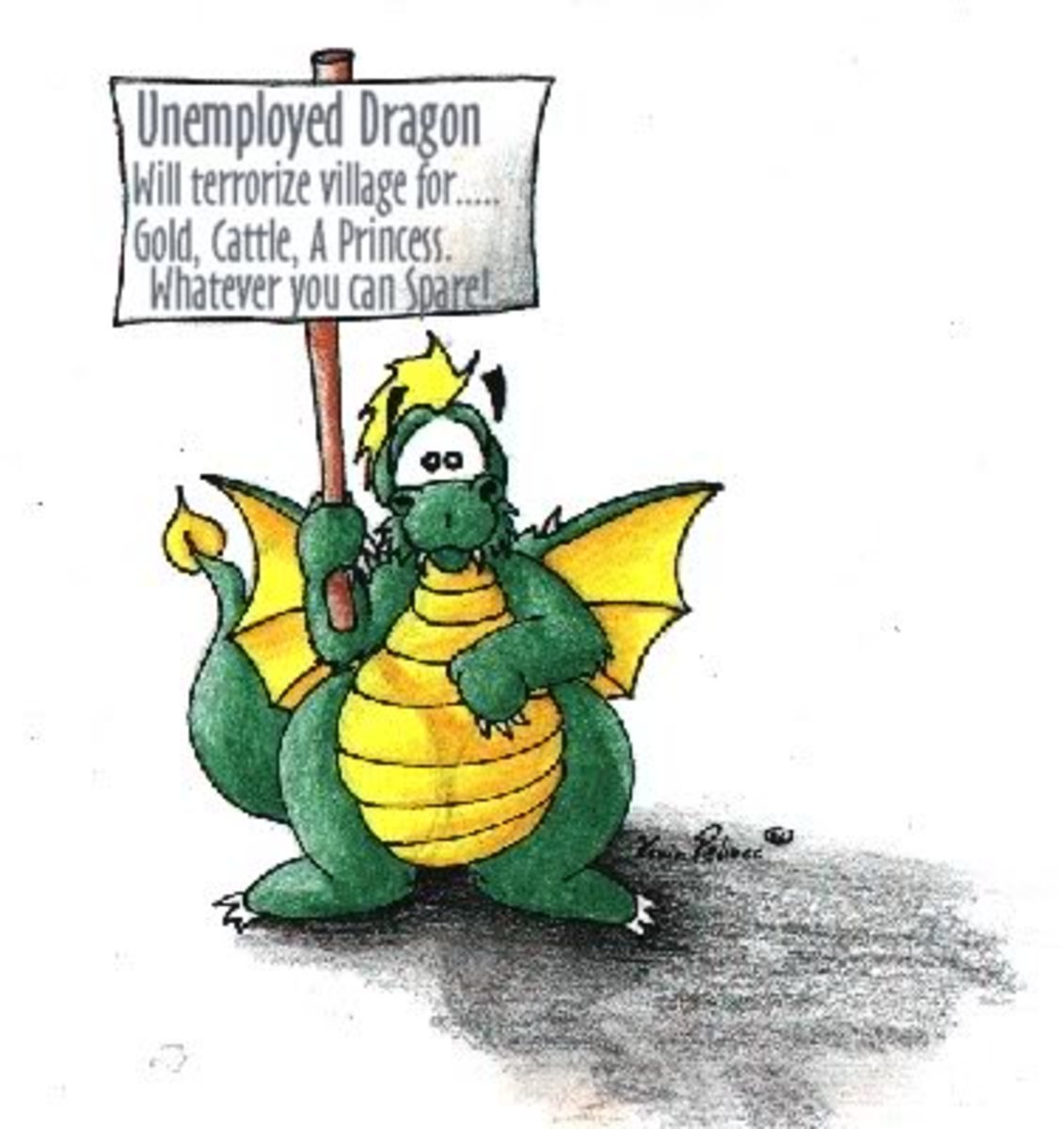How To Increase Your Value As An Employee

Benefits Of Being A Good Employee
The most recent economic downturn has shown us that no industry, company, or individual is entirely recession-proof. Millions of people, many of them long-term employees, suddenly found themselves applying for unemployment benefits.
In some cases, there is little you can do to protect yourself during severe economic problems, but it’s in the best interests of most companies to keep their best employees as long as possible.
Being among these “best employees” has several benefits:
- Increased chance of advancement; managers want to reward and retain their best workers.
- Decreased chance of being laid off when times are difficult; managers will lay off their low-performers or "problem" people before their good employees.
- Increased job satisfaction; you can take pride in a job well done.
These tips describe some of the traits and actions that can set you apart from other workers.
Learn Your Job
You were hired to fill a specific function. Learn everything you need to know to excel at that function. It doesn’t really matter what that function may be; if you were hired to do it, it must be necessary. If this is an entry-level position, keep in mind that you can’t expect to move on to a more advanced position until you’ve mastered this first function.
Every job is needed; no job is beneath you. The main difference is that some jobs are easier to learn than others. Learn your job well so you don’t have to stay at the starting point longer than needed.

Be On Time
Always be on time. If your shift starts at 8 AM, arrive early enough so you can start being productive at 8 AM. Don't punch in at 8 and then get coffee, socialize with your coworkers, etc.
Your manager depends on you being where you’re supposed to be when you’re supposed to be there. If you’re not, this will affect everyone who depends on whatever function you provide. Don’t make your manager have to explain to his boss why you’re not ready to work.
Make sure you don’t take more than your allotted time for breaks and lunch. Again, it’s important to be at your expected location during the expected times. Also, don’t be the first one to punch out at the end of the day. Your boss knows who pays more attention to the clock than to the work. Don’t be that person.
Asking Questions
There's nothing wrong with asking questions. However, if you have to keep asking the same question over and over after it's been explained to you, that will raise a red flag with your boss. If you need to, take notes so you can refer back to the answers you've already received. The act of writing them down may help you remember them.
If You’re Not Sure, Ask
If you’re unsure how to perform a particular task or some other aspect of your job, ask your manager sooner rather than later. If you don’t ask, you can’t be productive. You may even make other people’s jobs more difficult. Your manager wants you to succeed and won’t mind helping you understand how to do what’s needed. Asking the question shows initiative; not asking makes you look dumb and ineffective.
Be Reliable
Managers don’t need to constantly check up on their reliable employees. They have confidence that the employee is doing what is needed to accomplish the task at hand. The manager knows that the employee will let them know if something needs their attention. Reliable employees take their jobs seriously and can likely handle greater responsibility when the opportunity comes up.
Reliable employees take a lot less effort to manage than other employees. This makes your manager's job a lot easier. That, in turn, makes you more valuable to your boss.
Take Every Chance To Learn A New Skill
Once you’ve learned the basic tasks you were hired for, take full advantage of every opportunity to learn new skills. This may involve cross-training, self-study, or formalized instruction at a training session.
If you’re offered this opportunity, it’s likely that your employer already thinks you have potential. Show them that they’re right! By demonstrating that you’re willing and able to learn new skills, you increase your value to your employer.
The more skills you have, the more valuable you are to your employer. For example, if you work in construction and the only skill you have is roofing, your opportunities are limited. But if you can also install windows, hardwood floors, do framing, and lay brick, you're a versatile employee who can be used all over the job site. If times are tough, your boss will want to keep someone like you around as much as possible.
Training
Some of the technical certifications that I’ve received after training paid for by my employer include:
- Sun Certified Solaris Administrator
- Sun Certified Network Administrator
- Sun Certified Workgroup System Engineer
- Sun Certified Enterprise System Engineer
- Sun Certified Data Management Engineer (Solstice Disksuite)
- Sun Certified Data Management Engineer (Veritas Volume Manager)
- Veritas Certified High Availability Specialist Level 1 for Unix
- EMC Proven Professional certification for CLARIION
- Cisco Certified Network Associate
Be Proactive
Don’t wait to be told what to do. If you see a way you can help out in addition to your assigned duties, by all means pitch in! You don’t need to wait for an invitation. Self-motivated people are more valuable and more likely to advance.
Someone who isn’t proactive will finish their assignment and then sit there until their manager gives them their next assignment. Don’t be the person who requires constant management!
Be Diligent
Approach your work with steady, earnest, and energetic effort. Whatever your job is, make it your goal to do it in an excellent way. Pay attention to detail in your every effort. Your reputation for diligence will serve you well in any position you may have.
If it falls to your lot to be a street sweeper, sweep streets like Michelangelo painted pictures, sweep streets like Beethoven composed music. Sweep streets like Shakespeare wrote poetry. Sweep streets so well that all the host of heaven and earth will have to pause and say: Here lived a great street sweeper who swept his job well.
— Martin Luther King, Jr.
Be Positive
Keep a positive attitude during the day. Managers and coworkers typically like people with positive attitudes. People with positive attitudes help energize a work environment. These attitudes tend to be contagious; your enthusiasm will spread to others.
On the other hand, most people don’t want to be around negative people. Negativity drains the energy and enthusiasm from a work environment, making the hours drag by.
If it ever comes time to "downsize", the managers will be happy to keep the upbeat, energizing employee instead of the negative one.
Be Self-Disciplined
When you’re in work, you need to be there mentally as well as physically. Don’t let things like the Internet, your smartphone, the local office gossip, or personal issues outside of work distract you from what you’re being paid to do. Staying on-task will help you stay on-track for success.
Appreciate Constructive Criticism
Be aware that you don’t know everything. You will make mistakes. When you do, it’s likely that your boss will let you know about it. That’s his job. Your job in this case is to listen to what he has to say. Don’t immediately become defensive. Listen to the criticism and learn from it. Treat it as a chance to improve the way you do things.
If the criticism angers you or seems unfair, calm down before you respond. Take some time to think about it. When you’ve cooled off, ask to speak with the person so you can better understand what his expectations are so you can adjust the way you do things.
It’s possible that your boss didn’t mean the criticism to sound as harsh as it did. After all, like you, he’s only human and can also make mistakes.
Even if you disagree with the criticism, it’s important to understant that it’s correct in that person’s view. You may know exactly what you meant, but that’s not how it was interpreted by the other person.
Deal In Solutions, Not Problems
If the only time you go to your boss is because of problems, your boss will start to associate you with problems. Every time he sees you heading in his direction, he’ll start dreading whatever problem you’re about to dump on him. Instead, when you go to your boss with problems (which you will certainly have to do at times), bring several solutions to those problems with you. This will help your boss see you as a source of solutions instead of a source of problems.
Problem example:
“Boss, the flux capacitor failed.”
Solution example:
“Boss, the flux capacitor failed. I called around and found two companies that have them in stock. One is 10% more expensive, but they can get it to us overnight and we can be operational by noon. I can order it now if you approve.”
See the difference in these approaches?

Seek Out Good Relationships
It's very important to develop a positive working relationship with your manager. It’s also well worth the time to connect with people in different parts of the organization. This helps you become more aware of what the company does as a whole. The more you know about what the company does, the more you can appreciate your role in the organization.
You should always treat your coworkers with respect, courtesy, and kindness. They are all part of your team.
At the same time, it’s important to not associate with people who do not have these same values. There are always people who spend more time complaining than working. Stay away from these negative influences.
Be Ethical
A good employee is an ethical employee. An ethical employee:
- Follows the policies of the company in letter and in spirit.
- Does not take credit for the work of others.
- Deals with other people honestly and fairly.
- Does not spread rumours.
- Does not waste the company's time or other resources.
- Helps others to succeed at their tasks.
Conclusion
All of these items are important for being a good employee. Some people do these things naturally while it takes other people a little more work. It’s worth the effort. Sometimes, simply being aware of these things can help start you down the right path.
Related Information
Improve Your Job By Improving Your Relationship With Your Boss
Building a positive, supportive relationship with your boss will improve your current job and your future career.
© 2014 Ron Bergeron








